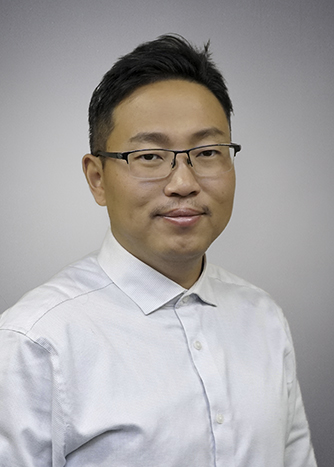Xiaoyang Ruan PhD is an Assistant Professor at McWilliams School of Biomedical Informatics, and a member of the Center for Translational AI Excellence and Applications in Medicine (TEAM-AI), led by Dr. Hongfang Liu. Dr. Ruan possesses a diverse educational background encompassing biopharmacy, genetic epidemiology, and bioinformatics. His professional journey includes valuable experience in both the academic healthcare sector and the pharmaceutical industry. Dr. Ruan's current research focus is real-world data base deep learning architectures for real-time risk modeling, and deep phenotyping based precise medicine. His work on chronic kidney disease endpoint risk modeling led to the first deep learning model capable of individualized dynamic risk modeling across diverse prediction horizon. Dr. Ruan believes in the power of teamwork in bringing safe and reliable AI to benefit the healthcare field in the era of digital transformation, recognizing that collaboration among multidisciplinary experts is key to overcoming the complex challenges at the intersection of technology and healthcare.
- Tell us about your research center and/or what research/work you are currently working on?
Real-world evidence for peri-operative excellence
Obesity deep phenotyping for precision medicine
Real-world evidence based risk modeling of ADRD among elderly
Self-explainable longitudinal deep learning architecture with real-world implementability
- What type of student or Postdoctoral Fellow are you looking for to work in your center?
I am looking for student or fellows with educational background in any of the following two areas that cover both biology and data science. Biomedical Sciences, Pharmaceutics, Epidemiology, Data Science and Statistics, Machine/Deep Learning, Computer Science/Software Engineering. Candidate must have a demonstrated programming skill to handle large scale data.
- What does the future of your research look like?
Real-world evidence for peri-operative excellence:
Exploration of advanced data sources and integration methods to enhance real-world evidence collection. Development of predictive models for personalized peri-operative care, incorporating genetic, environmental, and lifestyle factors. Implementation of innovative technologies such as wearable devices and remote monitoring to gather continuous real-time data for peri-operative optimization. Investigation of long-term outcomes and quality of life after surgery to inform comprehensive peri-operative strategies.
Obesity deep phenotyping for precision medicine:
Deeper exploration of the genetic and epigenetic factors contributing to obesity. Integration of multi-omics data (genomic, proteomic, metabolomic) for a more comprehensive understanding of obesity phenotypes. Development of targeted interventions based on individualized profiles, considering not only weight loss but also metabolic health and overall well-being. Exploration of precision medicine approaches to address obesity-related comorbidities.
Real-world evidence-based risk modeling of ADRD among the elderly:
Refinement of risk models by incorporating a broader range of demographic, clinical, and lifestyle variables. Exploration of novel biomarkers and imaging techniques for early detection and prediction of Alzheimer's Disease and Related Dementias (ADRD). Longitudinal studies to understand the dynamic nature of risk factors and their impact on ADRD progression. Investigation of interventions and lifestyle modifications that may mitigate the risk of ADRD.
Self-explainable longitudinal deep learning architecture with real-world implementability:
Development of more interpretable and explainable deep learning models for longitudinal data. Integration of self-explanation mechanisms to enhance the trustworthiness of the models, making them more accessible to healthcare professionals and patients. Exploration of transfer learning and federated learning approaches for better generalization across diverse real-world datasets. Real-world validation and implementation of these models in clinical settings, addressing challenges related to data privacy, scalability, and real-time decision support.
- What does the future of informatics look like?
Dr. Ruan envisions a future where AI seamlessly integrates with healthcare practices, enhancing diagnostics, treatment plans, and overall patient outcomes, while significantly reduce the cost of healthcare.
- What major UTHealth Houston departments/institutes do you collaborate with?
Obesity Clinic; Memorial Hermann Health System
Education
- PhD, 2009, Microbiology and Biopharmacy, Shenyang Pharmaceutical University, Shenyang, China
- MS-PhD (Joint-Training), 2009, Lab of Human Genetics, Beijing Hypertension League Institute, Beijing, China
- BS, 2004, School of Pharmacy, Shenyang Pharmaceutical University, Shenyang, China
Areas of Expertise
- Predictive modeling
- Deep phenotyping
- Explainable AI
- Precision Medicine
